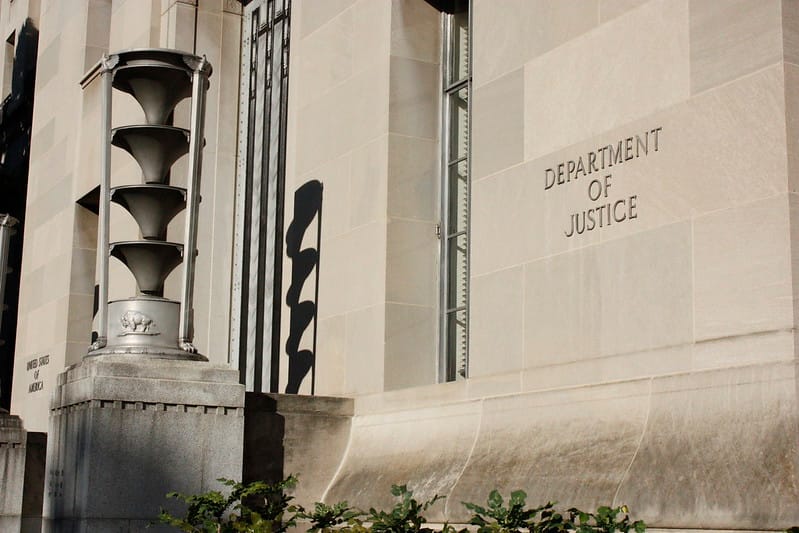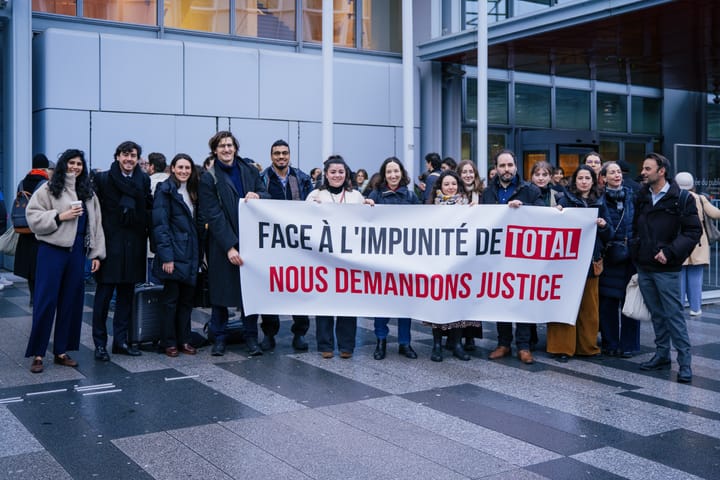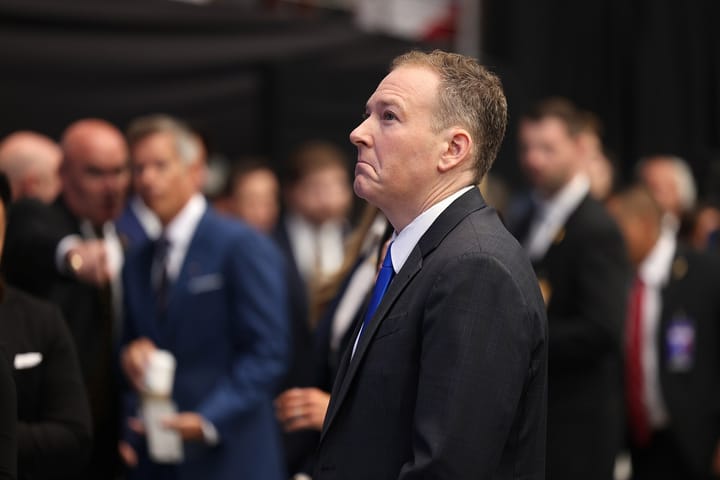US Government Says Court Should Dismiss Youth Case Challenging Trump’s Fossil Fuel Orders

The Trump administration is asking a federal court to toss out a climate lawsuit brought by 22 young Americans on constitutional grounds challenging the administration’s pro-fossil fuel agenda, arguing that grievances over federal energy policy cannot be addressed by the courts.
In a motion to dismiss briefing filed on August 4 in the case Lighthiser v. Trump, the US Department of Justice asserts that the youth plaintiffs lack standing – the legal grounds necessary to bring a case before a court – and that there is no constitutional right to energy policies that disfavor fossil fuels. The DOJ also rejects the plaintiffs’ claim that President Trump is acting beyond his lawful authority in issuing several executive orders intended to “unleash” fossil fuels and undermine renewable energy while suppressing climate science.
The lawsuit, filed on May 29 in federal district court in Montana, takes aim at three executive orders, titled “Unleashing American Energy”; “Declaring a National Energy Emergency”; and “Reinvigorating America’s Beautiful Clean Coal Industry.” Youth plaintiffs argue these orders, and actions taken to implement them, will exacerbate the climate emergency that is already harming their health, safety and welfare, and therefore amount to violations of their rights to life and liberty under the US Constitution. Plaintiffs also say that the administration is acting in a manner called ultra vires, meaning exceeding its legal authority, with actions that undermine or conflict with federal statutes. Defendants include President Trump and numerous cabinet officials and federal agencies tasked with carrying out the president’s executive orders.
In its motion to dismiss, the government requests that the court excuse the president from the lawsuit, claiming sovereign immunity and a general prohibition on courts taking action against the president. In a previous youth constitutional climate lawsuit brought against the US federal government – Juliana v. United States – the court did allow the president to be dismissed from the case.
That case, initially filed in 2015 by 21 youth climate activists, came to an end earlier this year when the US Supreme Court denied plaintiffs’ petition to review a Ninth Circuit Court of Appeals ruling in 2024 terminating the case before it could get to trial. Juliana tried to challenge the whole US fossil fuel-dominated energy system that contributes to dangerous climate change, and while the trial court had ruled several times that it could go to trial, the appeals court ultimately decided that plaintiffs could not meet the redressability requirement for standing, meaning that courts could not provide adequate relief to remedy the alleged injuries.
Lawyers for the Lighthiser plaintiffs say that the new case differs from Juliana, since the claims are framed differently and it more narrowly targets three specific executive orders. The DOJ, however, is telling the court that the two cases are essentially the same, noting that three of the plaintiffs from the Juliana case are now litigants in the Lighthiser case. And since the Juliana case did not survive procedural hurdles, this case should also be tossed out, the government argues. “Plaintiffs’ most recent complaint suffers from the same jurisdictional defects as those of Juliana,” the government states in its brief.
The Department of Justice also contends that plaintiffs’ ultra vires claims, or allegations that the Trump administration is engaging in unlawful overreach – are not justiciable. “The President acted within his Constitutional authority to issue the challenged executive orders,” the DOJ asserts. If plaintiffs believe agency actions taken to implement the orders violate the law, those actions must be challenged under the relevant statutes and standard Administrative Procedure Act proceedings, the DOJ argues.
Additionally, the DOJ says there is no constitutional due process right to certain favored energy policies and that courts generally cannot question the policy decisions made by the president and the executive branch.
“The challenged EOs focus on providing reliable, affordable energy to the American people to bolster our Nation’s energy security. Although plaintiffs believe the better course of action is to focus national energy policy on climate risks, the American voters selected a Presidential candidate with a different energy policy in the recent presidential election,” the DOJ's brief states.
Government Demands $1 Billion Bond
The Trump administration is also asking the court to quash the youth plaintiffs’ request for a preliminary injunction that was filed in June. Lawyers for the plaintiffs argue that Trump’s fossil fuel orders will lock in substantial levels of climate pollution and cause irreparable harm to the nation’s young people, and therefore the court should pause implementation of the orders while the lawsuit plays out. The DOJ is fighting that request, urging the court in a July 11 filing to reject it. In its filing, the DOJ puts forward many of the same arguments it made in its overall motion to dismiss, including that plaintiffs lack standing.
If the court finds that plaintiffs are able to bring their emergency motion to block Trump’s orders, the DOJ argues that the youth should have to post a $1 billion bond to compensate the government for what it claims would be substantial harm.
Lawyers for the youth pointed out in their response to the government’s filing that such an exorbitant bond request “from youth enforcing their constitutional rights is unprecedented.”
The court is scheduled to hold a two-day hearing on the preliminary injunction request and on the government’s motion to dismiss on September 16 and 17.
“This September we’ll head to federal court in Missoula, Montana for something that’s never happened before – a public evidentiary hearing, essentially a mini trial, where youth plaintiffs and leading experts will testify about the real and immediate constitutional harms caused by these executive orders. It will be the first time these facts are laid bare in court, the first time a federal judge will hear live testimony from youth plaintiffs and leading experts, about how these executive orders are putting lives at risk,” Mat dos Santos, co-executive director and general counsel at Our Children’s Trust, a nonprofit law firm representing the youth plaintiffs, said during a recent press conference in Washington DC.
“Thanks to these young people,” he said, “the truth will be heard.”


